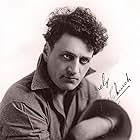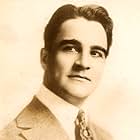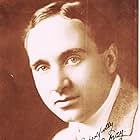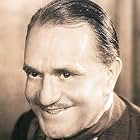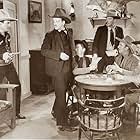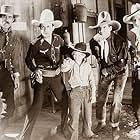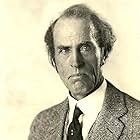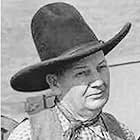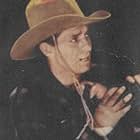In our era of multi-million dollar productions, it is with interest and amusement that we may survey the work of a Depression-era filmmaker who, virtually without a budget, managed to put together some feature films derided today for their tackiness, yet shown to audiences in theaters and on television - and still being viewed by cinema historians who write about their deficiencies. Robert J. Horner turned out a number of very low-budget westerns, this one being part of an intended series of six Bill Cody features, only three of which were completed.
Cody, a native of St. Paul, Minnesota, who was not related to the famed Buffalo Bill, had begun starring in films a decade earlier and was available in 1933-34, when Mr. Horner approached him about doing a series. It is believed that the screenplay for "Border Guns" was written pseudonymously by the prolific, ever-creative Oliver Drake, though the latter claims no such credit in his autobiography. The supporting cast is very strong, including Franklyn Farnum, William Desmond, Wally Wales, Nelson McDowell, and George Chesebro. The plot has undercover agent Cody riding into town with a severe cough (turning out to be only a cold), and finding himself attracted to both the pretty daughter of the physician he visits and a lovely dance hall girl. He develops a friendship and a rivalry with Fred Palmer (Franklyn Farnum), whom Cody discovers to be involved in gun smuggling across the border, rustling, and other nefarious acts.
The story and the cast are more than adequate, but actor/director Jack Nelson had an uphill climb in hastening to do each scene on the first take, getting little support in the editing department. Some very feeble humor is injected, and the time required to turn out vigorous stunt sequences of real quality, so dear to the hearts of western devotees, was simply not available. No purpose would be served by seeking to compare this feature with more elaborate productions of the era. Accepted for what it is: a very low-budget cowboy picture from the heart of the Depression, it is not without its merits - and a viewer willing to take it on its own terms may even find some of the production shabbiness endearing,





